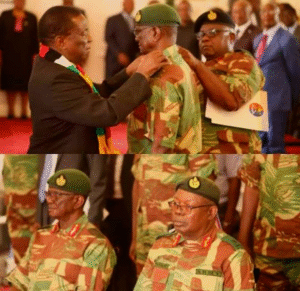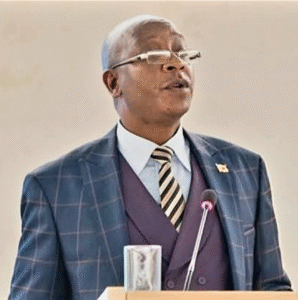TRADITIONAL LEADERS REWARDED POST-CONTESTED ELECTIONS

In the wake of President Emmerson Mnangagwa’s contentious victory in the 2023 elections, the Zimbabwean government has authorized a remarkable bonus scheme for traditional chiefs, a move perceived by many as a reward for their active campaigning. This decision, coming barely two months after the elections, has sparked a wave of criticism and raised questions about the underlying motives behind this sudden generosity.
President Mnangagwa’s victory was mired in controversy, with allegations of electoral malpractices and manipulation. The involvement of traditional chiefs in the campaigning process, alongside Zanu PF’s shadowy affiliate group, Faz, particularly in rural areas, was a critical factor in this dispute. Critics argue that the chiefs’ support for Mnangagwa and his party played a significant role in influencing rural voters, an allegation that has added to the post-election tensions.
The approval of a sliding scale of bonuses for these traditional leaders is seen by some as a quid pro quo, a reward for their loyalty and efforts in securing Mnangagwa’s victory. This move, while legal, raises ethical concerns and further polarizes the already tense political landscape in Zimbabwe.
The role of traditional leaders in Zimbabwean politics has always been a subject of debate. According to the constitution, chiefs are supposed to remain apolitical, serving as custodians of culture and tradition. However, the reality often deviates from this ideal, with many chiefs actively participating in the political arena, aligning themselves with the ruling party. This alignment, critics argue, undermines the neutrality expected of traditional leaders and affects their ability to impartially serve their communities.
The recent bonuses are not just a financial matter but also a political statement. They signal the government’s recognition and appreciation of the chiefs’ support, solidifying their allegiance to the ruling party. This could have long-term implications for the political landscape in rural Zimbabwe, where traditional leaders wield significant influence.
The controversy surrounding the bonuses also highlights the broader issues of governance and democracy in Zimbabwe. The use of state resources to reward political loyalty, especially in a country grappling with economic challenges, is a point of contention. It raises questions about the prioritization of political interests over the pressing needs of the populace.
Moreover, this development comes at a time when the credibility of the electoral process in Zimbabwe is under scrutiny. The involvement of traditional leaders in the political process, and their subsequent reward, can be seen as an erosion of the democratic principles that are supposed to govern elections. It reflects a pattern where electoral success is often followed by acts that consolidate power and reward loyalty, sometimes at the expense of democratic norms.
In conclusion, the Zimbabwean government’s decision to grant bonuses to traditional chiefs post the 2023 elections is a multifaceted issue. It encapsulates the complex interplay between traditional authority and politics in Zimbabwe, the challenges of maintaining democratic principles in a politicized landscape, and the implications of such actions on the governance and future political dynamics of the country. As Zimbabwe moves forward, the role of traditional leaders and their involvement in politics will remain a critical aspect to watch, especially in understanding the evolving nature of Zimbabwean democracy and governance.




